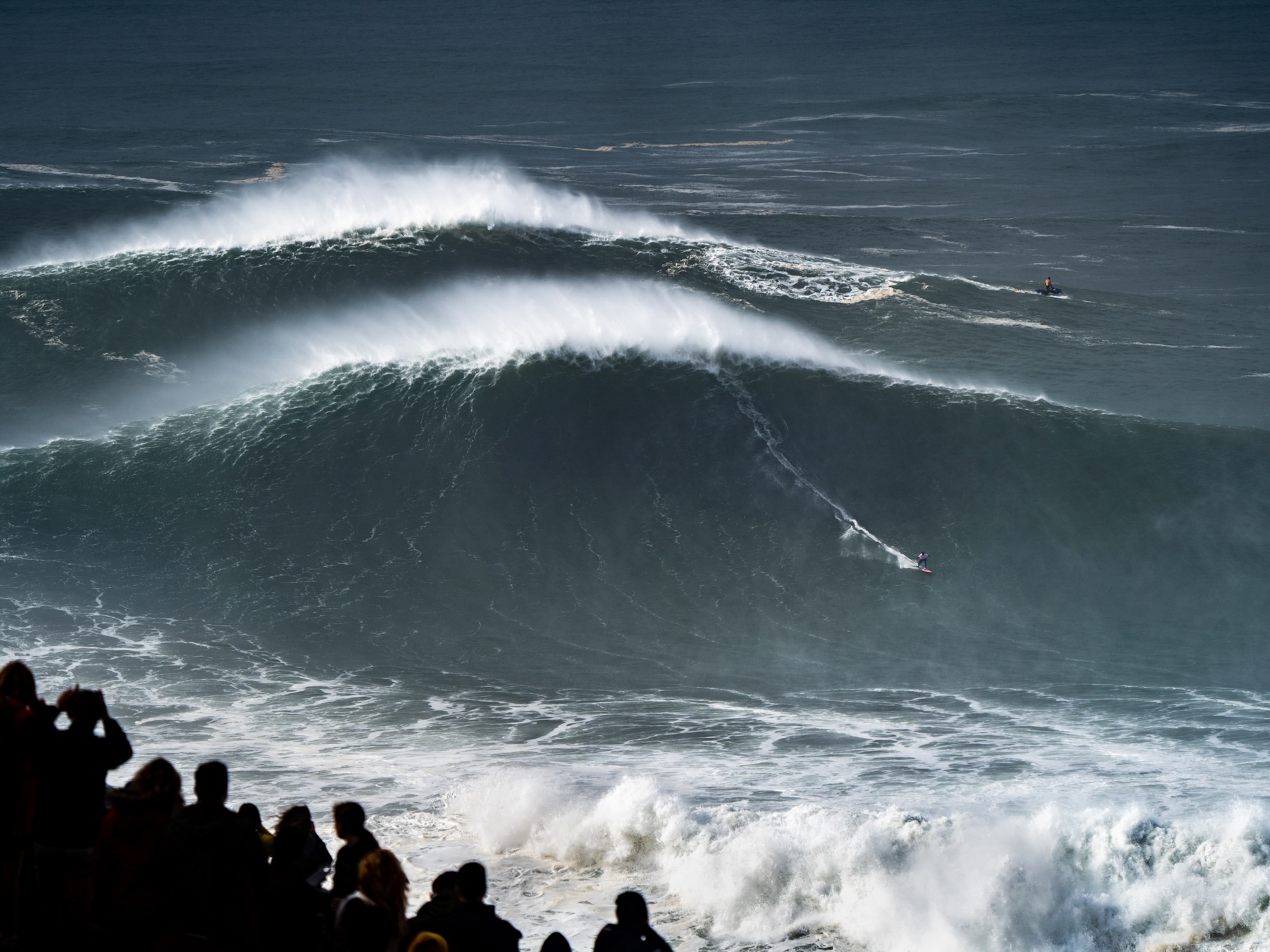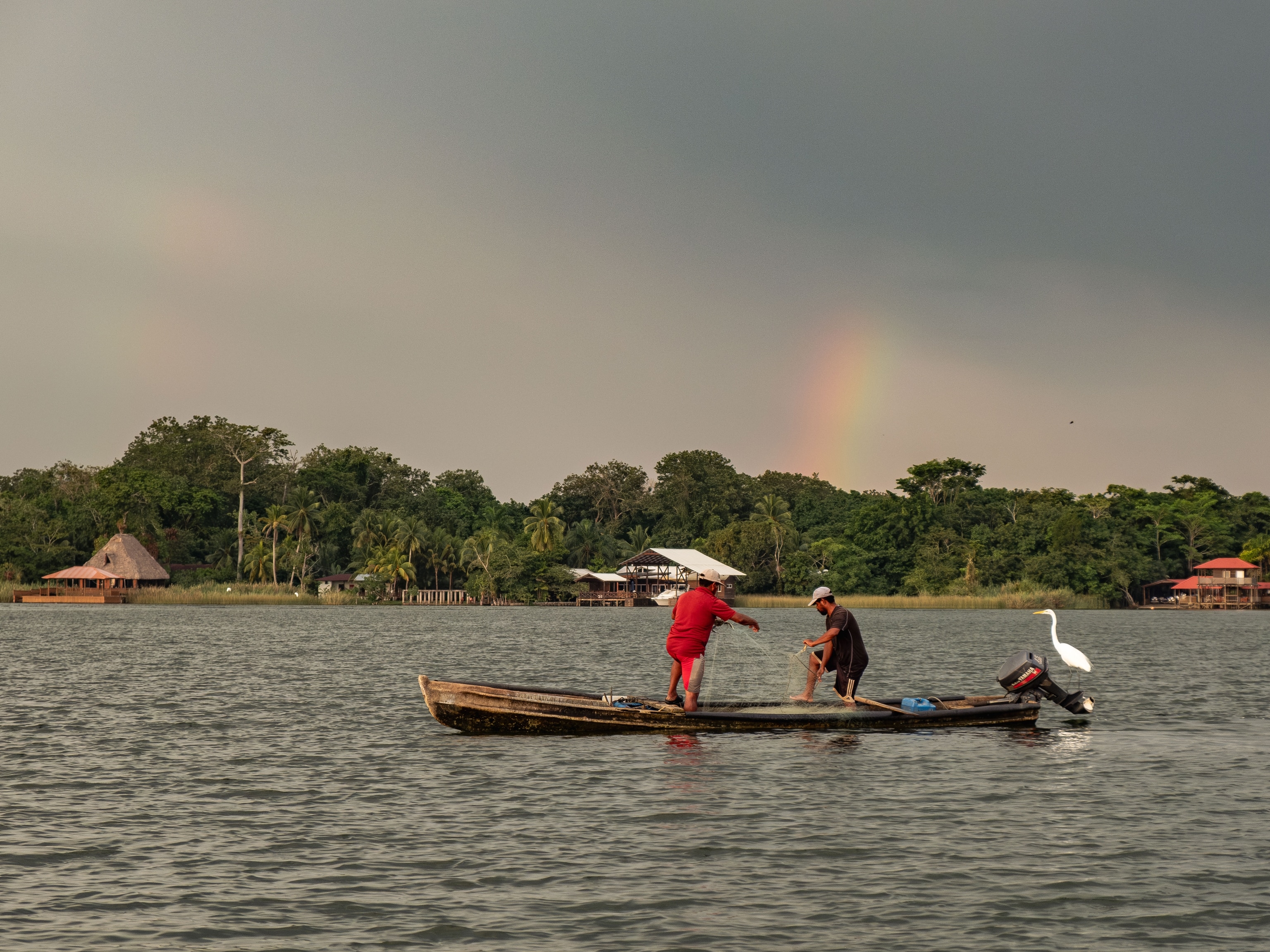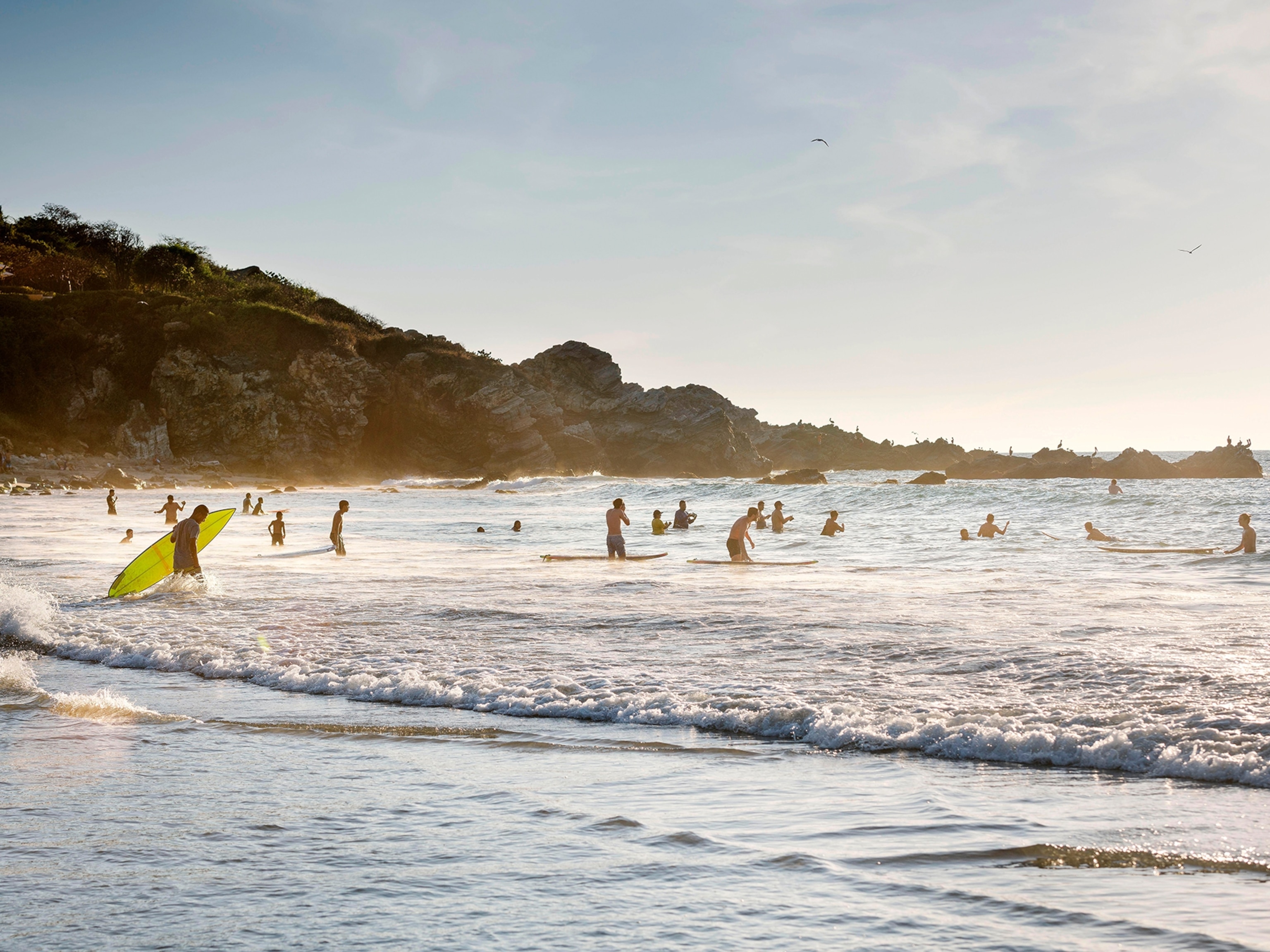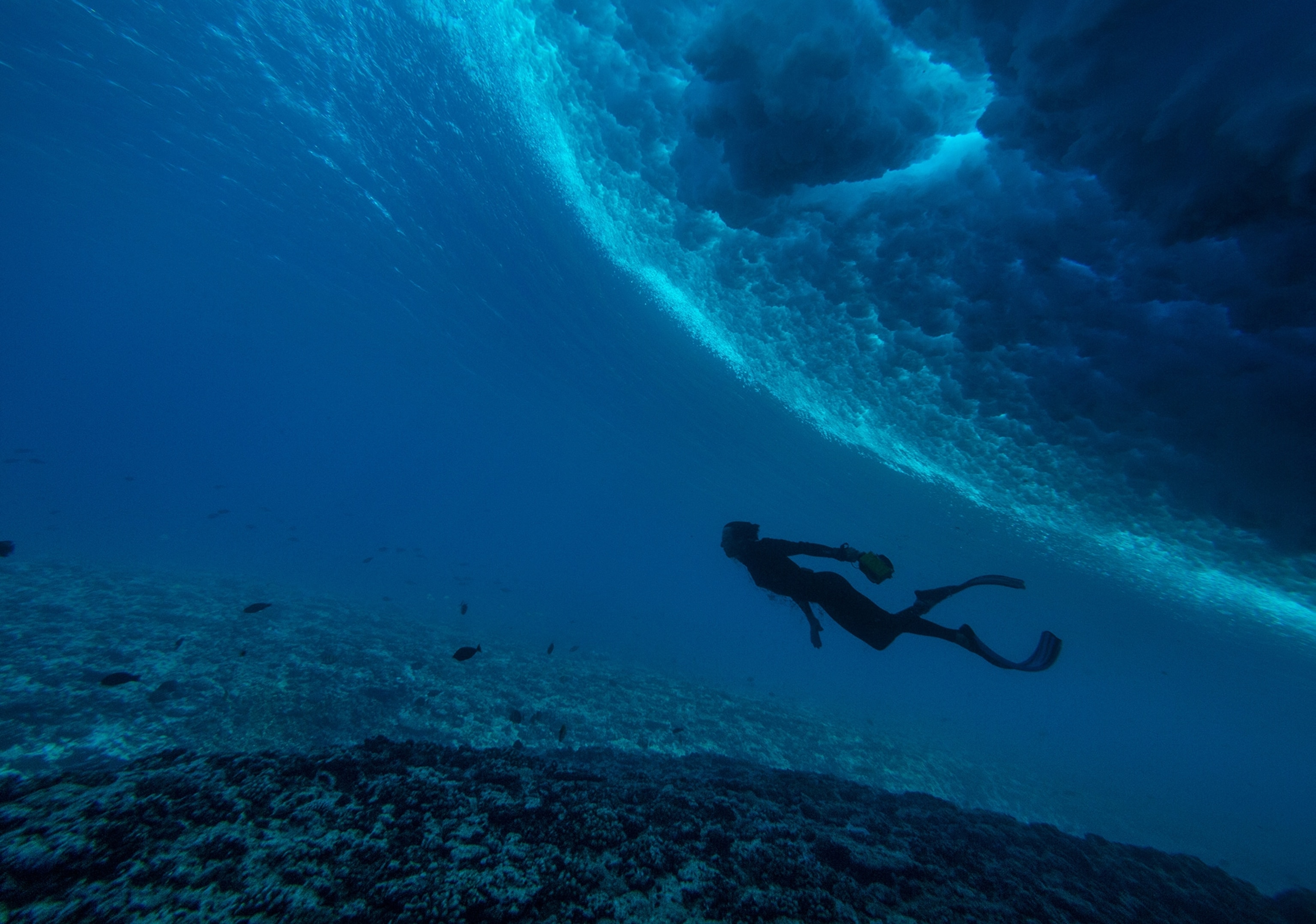
These monster waves test even the most daring surfers
In French Polynesia, waves are revered and feared at the legendary surf break off the village of Teahupoo.
Some of the world’s heaviest waves crash along the reef of Teahupoo, on the southeastern coast of Tahiti. The power of these barrels explains the small village’s selection as the venue for the surfing competition at the 2024 Olympics, but it’s also a place of dramatic beauty and rich culture.
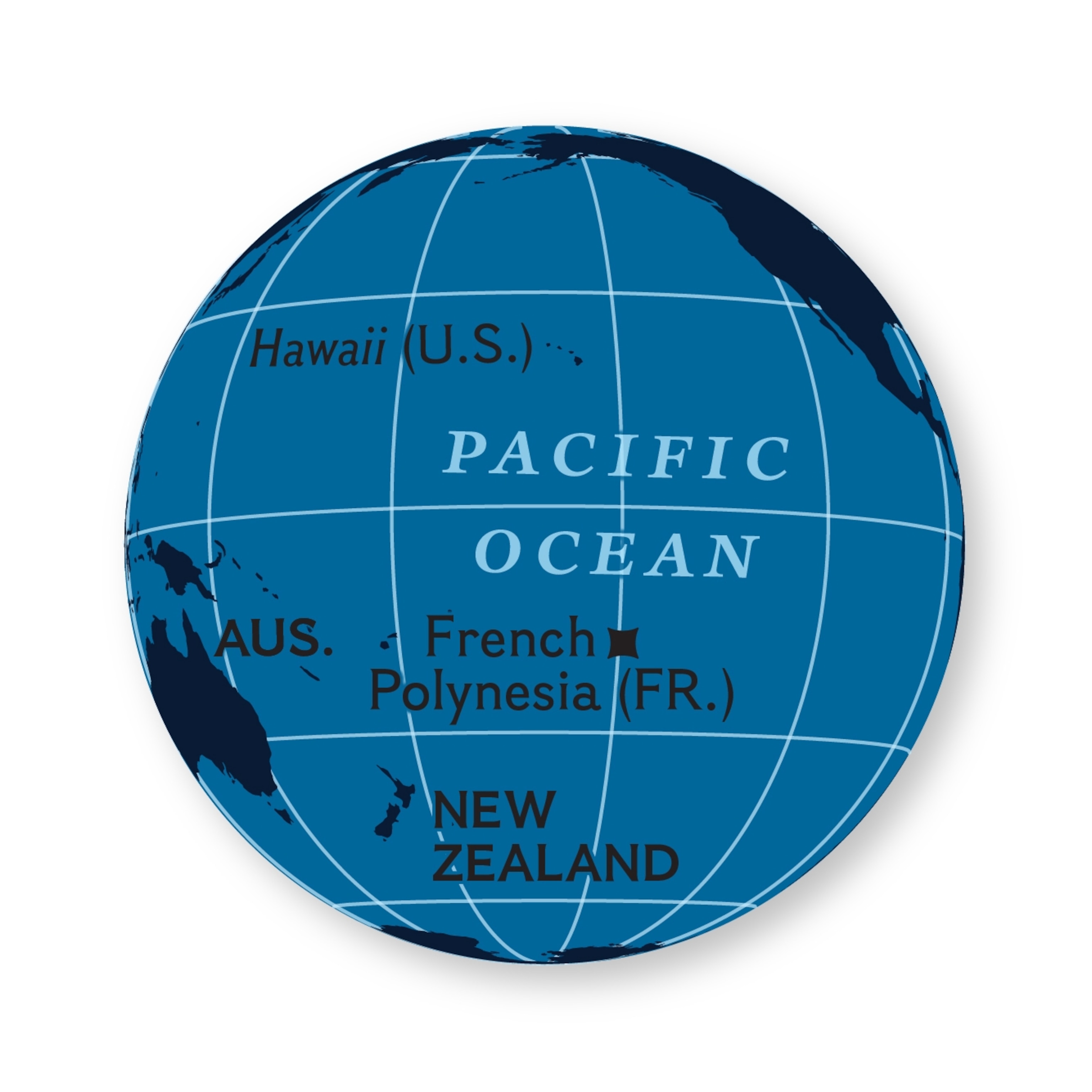
A wild ride
The barrier reef rises from dizzying depths at Teahupoo’s Passe Havae; it has the perfect shape and location to amplify Pacific Ocean swells. These can become the thundering surges known as plunging waves. May through October is the best time to catch the action, but exceptional surf rolls in year-round.
For the image above, photographer Andy Bardon went below the surface. “A deep breath and calm nerves are required to safely dive under and photograph these waves,” he says. But then “a biodiverse underworld reveals itself.”
Surfing Teahupoo feels like battling two giants, with the mountains on one side and the ocean breaking on the other.
Michel Bourez, Tahitian Olympic surfer
Surf and turf
On water: Visitors hire local water taxis for up-close views of expert surfers riding the waves—as well as glimpses of dolphins and, August through October, humpback whales. Not far from the black sand beach, snorkelers can explore colorful coral gardens.
On land: A sandy trail beyond the Tirahi Rivière meanders past brightly painted houses to a palm-shaded point where families picnic and surfers begin their paddle out to the break.
More to explore
Boat tours take in the remote Fenua Aihere and Te Pari coastlines adjacent to Teahupoo. Here travelers find waterfalls that tumble into the sea, caves linked to Polynesian legend, and paths leading to ancient petroglyphs. To help protect the ecosystem and boost fish populations, locals have designated a roughly three-square-mile marine zone around Teahupoo to be under rahui, a traditional Polynesian fishing and harvesting ban.
(Take a deeper dive into the culture and adventure of Tahiti.)
By the numbers
1: Number of roads leading to Teahupoo
30+: Height the waves can reach, in feet
1,420: Approximate population of Teahupoo
This story appears in the September 2021 issue of National Geographic magazine.

